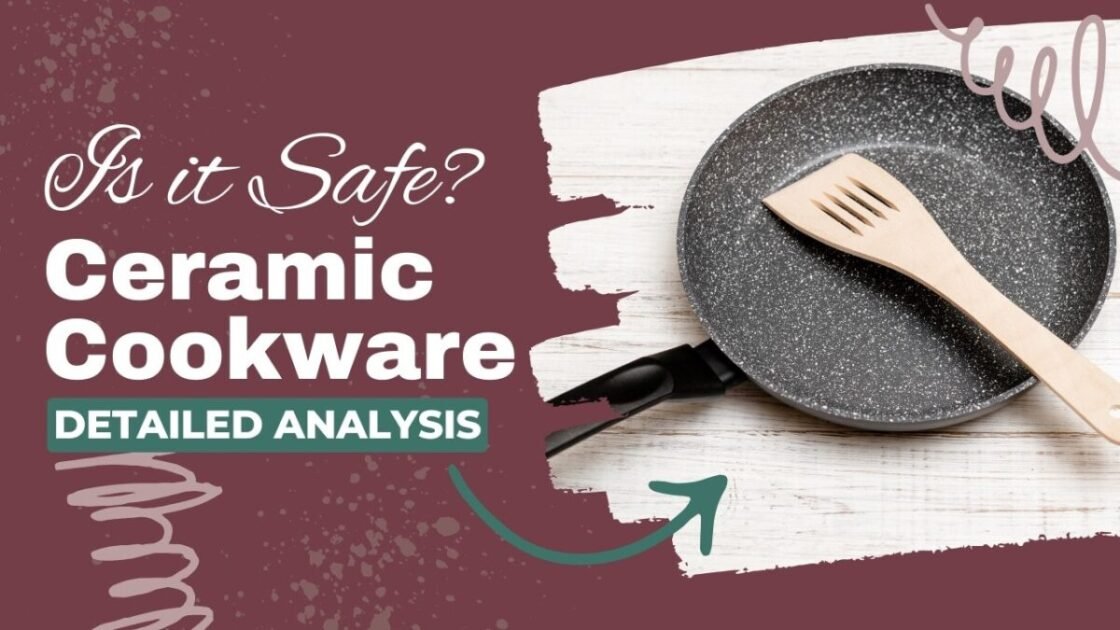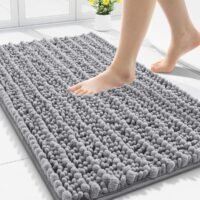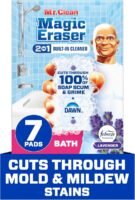The safest cookware options to avoid risky ingredients seeping into your food are stainless steel, ceramic, glass, and cast-iron pots and pans, which do not have coatings. These materials are considered the least toxic products on the market and are recommended by experts for their safety and durability.
Stainless steel pots and pans are known for their high heat resistance and even cooking, while ceramic cookware is non-reactive and easy to clean. Glass cookware is a great option for oven and microwave use, and cast-iron cookware is known for its durability and excellent heat retention.
By choosing these materials, you can ensure a healthier cooking experience without compromising on quality.
:max_bytes(150000):strip_icc()/__opt__aboutcom__coeus__resources__content_migration__serious_eats__seriouseats.com__2020__03__20200320-covid-food-prep-gloves-shutterstock-3d4aa015da574e1b937fa5c14b040e1e.jpg)
Materials For Non-toxic Cookware
When it comes to ensuring the safety of the cookware you use in your kitchen, it is important to pay attention to the materials it is made of. Non-toxic cookware is essential to prevent risky ingredients from seeping into your food. The following are some of the safest materials for cookware:
H2stainless Steel/h2
Stainless steel is a top choice for non-toxic cookware due to its durability and resistance to corrosion. It is made from a combination of metals, including iron, chromium, and nickel. However, make sure to choose stainless steel cookware that is labeled as 18/10, which indicates it has 18% chromium and 10% nickel content. This ensures that the cookware is highly resistant to leaching and is safe for cooking acidic foods.
H2ceramic/h2
Ceramic cookware is another excellent, non-toxic option. It is made from natural materials such as clay and minerals, which are then glazed to provide a non-stick surface. Ceramic cookware is free from harmful chemicals like PFOA and PTFE found in traditional non-stick coatings. It is important to note that not all ceramic cookware is made equal. Look for brands that use high-quality ceramic and ensure that the glazes used are free from lead or cadmium.
H2cast Iron/h2
Cast iron cookware has been used for centuries and is known for its durability and heat retention properties. It is made by pouring molten iron into a mold, creating a solid, heavy piece of cookware. Cast iron cookware is naturally non-toxic as the iron leaches into your food, which can be beneficial for those with iron deficiencies. However, it is essential to properly season and maintain cast-iron cookware to prevent rust and ensure its longevity.
In summary, when looking for non-toxic cookware options, stainless steel, ceramic, and cast iron are the top choices. Stainless steel offers durability and resistance to corrosion; ceramic provides a safe, non-stick surface without harmful chemicals; and cast iron brings along its heat retention and iron leaching properties. By choosing cookware made from these materials, you can ensure the safety and healthiness of your cooking.
Choosing The Safest Cookware
Looking for the safest cookware? Stainless steel, ceramic, glass, and cast iron are your go-to options, as they prevent the risk of harmful ingredients leaching into your food.
Avoiding Toxic Coatings
When it comes to choosing the safest cookware, it’s crucial to steer clear of any toxic coatings. Certain materials used in nonstick cookware, such as perfluorooctanoic acid (PFOA) and polytetrafluoroethylene (PTFE), can release harmful chemicals when exposed to high temperatures. To avoid these risks, opt for cookware that doesn’t have a coating. Stainless steel, ceramic, and cast iron pans are excellent options that don’t contain any toxic coatings.
Considering Hygiene
Hygiene plays a vital role in the safety of your cookware. Bacteria can easily multiply on surfaces that aren’t properly cleaned, leading to potential foodborne illnesses. When choosing cookware, consider the ease of cleaning and maintenance. Stainless steel and ceramic cookware are known for their non-porous surfaces that are easy to clean and resistant to bacterial growth. On the other hand, materials like cast iron require special care to maintain hygiene but can be ideal for certain cooking tasks.
Exploring Different Options
Now that you understand the importance of avoiding toxic coatings and considering hygiene, let’s explore different options that are both safe and practical for your cooking needs:
- Stainless steel: Known for its durability and resistance to rust, stainless steel cookware is a popular choice among chefs. It’s non-reactive, meaning it won’t interact with acidic ingredients, and it can withstand high temperatures without releasing harmful chemicals.
- Ceramic: Ceramic cookware is made from natural materials and doesn’t contain any harmful substances. It’s non-stick, easy to clean, and provides even heat distribution for precise cooking.
- Cast iron: Cast iron pans are known for their exceptional heat retention and durability. While they require seasoning and careful cleaning to maintain their hygiene, they can be a great choice for searing, frying, or baking.
- Glass: Glass cookware is inert and non-porous, making it a safe option for cooking and storing food. It’s perfect for oven use, as it can withstand high temperatures without leaching any chemicals into your dishes.
- Titanium: Titanium cookware is lightweight, durable, and resistant to corrosion. It heats up quickly and evenly, reducing the risk of hot spots. However, it’s essential to ensure that the titanium cookware doesn’t have any non-stick coatings that may contain harmful chemicals.
Best Non-toxic Cookware Brands
Discover the best non-toxic cookware brands for a safe and healthy cooking experience. From ceramic and stainless steel to cast iron and glass, these brands offer a range of options to protect you from harmful ingredients.
All-clad
All-Clad is a renowned brand that offers a wide range of non-toxic cookware options. Known for their exceptional quality and durability, All-Clad products are made of high-quality stainless steel, which is free from harmful chemicals or coatings. The stainless steel construction ensures even heat distribution, making it perfect for cooking a variety of dishes. With All-Clad cookware, you can enjoy cooking with peace of mind, knowing that your food is not being exposed to any toxic substances.
Caraway
Caraway is a popular non-toxic cookware brand that focuses on providing a safer cooking experience. Their cookware is made with a ceramic non-stick coating that is free from PFOA, PFAS, lead, and cadmium. The ceramic coating is naturally non-stick, making it easy to cook and clean without the need for excessive oil or butter. Caraway cookware also features ergonomic handles and a stylish design, making it both functional and aesthetically pleasing.
Lodge
Lodge is a trusted name in the cookware industry and is known for their high-quality cast iron cookware. Cast iron is a great non-toxic option as it is free from harmful chemicals and coatings. Lodge cookware is made with pre-seasoned cast iron, which enhances its natural non-stick properties. It also retains heat exceptionally well, making it perfect for searing, baking, and frying. With Lodge cookware, you can enjoy healthy and delicious meals with the added benefit of easy clean-up.
Le Creuset
Le Creuset is a renowned French brand that offers a wide range of non-toxic cookware options. Their cookware is made of enameled cast iron, which is free from harmful chemicals and provides excellent heat retention and distribution. The enamel coating is resistant to chipping, staining, and cracking, making it highly durable. Le Creuset cookware is available in a variety of vibrant colors, adding a touch of elegance to your kitchen. With Le Creuset, you can cook with confidence, knowing that your food is being prepared on safe and reliable cookware.
In conclusion, when looking for the best non-toxic cookware brands, All-Clad, Caraway, Lodge, and Le Creuset are all excellent options. Each brand offers cookware made with non-toxic materials, ensuring a safe cooking experience for you and your family. Whether you prefer stainless steel, ceramic, or cast iron, these brands have a variety of options to suit your needs. Invest in non-toxic cookware to enjoy healthy and delicious meals without compromising on safety.
Frequently Asked Questions: What Is the Safest Cookware? A Comprehensive Guide
What Is The Safest Cookware For Your Health?
Stainless steel, ceramic, glass, and cast-iron cookware are the safest options for your health. They don’t have coatings that can release harmful ingredients into your food. Stick to these materials to avoid risky substances in your cooking.
What Cookware Is 100% Non Toxic?
Stainless steel, ceramic, glass, and cast-iron cookware are 100% non-toxic options for your kitchen. These materials do not have any coatings that can leach harmful substances into your food.
What cookware does EWG recommend?
The EWG recommends non-toxic cookware made of stainless steel, ceramic, glass, and cast iron. These materials are safer for your health and minimize the risk of harmful ingredients seeping into your food. Avoid cookware with coatings for the least toxic options available.
What Is The Most Hygienic Cookware?
The most hygienic cookware options are stainless steel, ceramic, glass, and cast-iron. These materials do not have coatings and are less likely to leach harmful chemicals into your food. They are safe alternatives for healthy cooking.
Conclusion
To ensure the safest cookware for your health, it is best to opt for materials like stainless steel, ceramic, glass, and cast iron. These options are free from harmful chemicals that can seep into your food. Additionally, these materials are durable and versatile, making them suitable for everyday use.
By using non-toxic cookware, you can prioritize your well-being and enjoy a healthier culinary experience.

Hi, I’m Esrat, and I’m so glad that you found me here at Happy Food Kitchen! I started Happy Food Kitchen in 2023 to have a creative, right-brained outlet to balance my very left-brained career in genetics.




